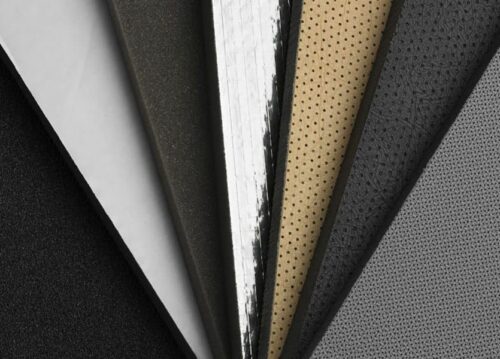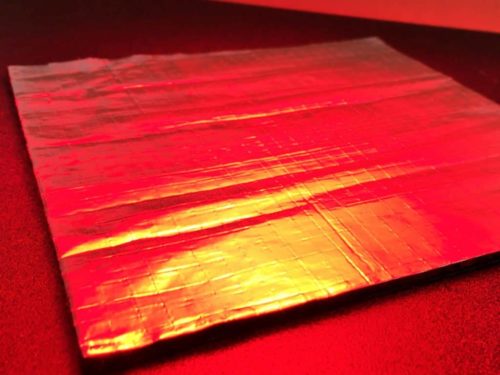Open Cell Foam vs. Closed Cell Foam
The material you select for sound insulation projects will significantly impact the level of sound absorption and attenuation you can expect to achieve. Open cell and closed cell foams are two effective material options for such applications, each with its own unique structure, benefits, and uses. Read on to discover how open cell and closed […]
How Does Foam Absorb Sound?
Sound is simply vibration, moving through a medium such as air, that we can perceive with our sense of hearing. Those vibrations or waves are cycles of compression and rarefaction, rhythmically displacing the molecules of the medium between the sound source and the listener. These cycles, or frequencies, are louder or quieter depending on how […]
When to Consider Polyurethane Foam Alternatives
Sound absorption materials are integral components for minimizing noise pollution. Polyurethane foam is a preferred material for sound absorption, but its chemical composition and environmental impact have resulted in the development of more environmentally friendly alternatives. Here, we will explore several alternatives to polyurethane foam that offer effective sound absorption without having an adverse environmental […]
What Is Sound Attenuation?
Excavators, bulldozers, and other types of heavy equipment can be very loud, posing certain hazards to operators, nearby workers and the surrounding environment. Sound attenuation materials can be added to this equipment to absorb sound or create a sound barrier, ensuring quieter and safer operation. But, what is sound attenuation, and how does it work? […]
The Best Marine Noise Reduction Materials
Boat manufacturers need to use high-quality noise-reduction materials to improve boat quality, safety, and passenger comfort. A quieter environment on board is one of the significant factors potential customers consider when buying a boat, and many will pay to have the engine room as silent as possible. Boat manufacturers use specialized marine noise reduction materials […]
Mass Law & Sound Transmission Loss
The mass law describes the relation between sound frequency, mass per unit area, and sound insulation efficacy. In other words, a material with a higher density is less likely to vibrate when in contact with sound waves and will transmit less noise through the substrate. The sound transmission loss of a floor or wall differs […]

What to Look For in Acoustic Absorbers
Acoustic absorbers are products that prevent sound waves from reflecting off of hard surfaces. Due to their ability to absorb and block sounds, they play an essential role in improving acoustics in many industrial contexts, particularly OEM equipment and enclosures. Acoustic absorbers help create safer, more productive spaces for living and working. This article will […]

Ways To Measure Industrial Equipment Sound Levels
A decibel (dB) is a unit of measurement measuring the intensity or loudness of sound. The unit of measurement was developed as a result of efforts to measure signal loss in telegraph and telephone lines. Bell Telephone Laboratories created the new unit of measurement in 1928, naming it the “bel” in recognition of communications innovator […]
Glossary
Technicon Acoustics, Inc. designs and manufactures customizable solutions for absorbing, isolating, and blocking acoustic and thermal energy. For your convenience, we have compiled a list of some of the industry’s most frequently used soundproofing and acoustical terms. Having a clear understanding of these terms will facilitate better communication during the product design process, ensuring a […]

Start to Finish with Technicon Acoustics
A common problem for many OEM’s is excessive noise or heat that needs to be controlled. As a leading manufacturer of acoustic and thermal solutions, we are experts in creating solutions that absorb or block unwanted noise and heat. Technicon Acoustics is dedicated to not only finding the perfect solution for your product, but also […]